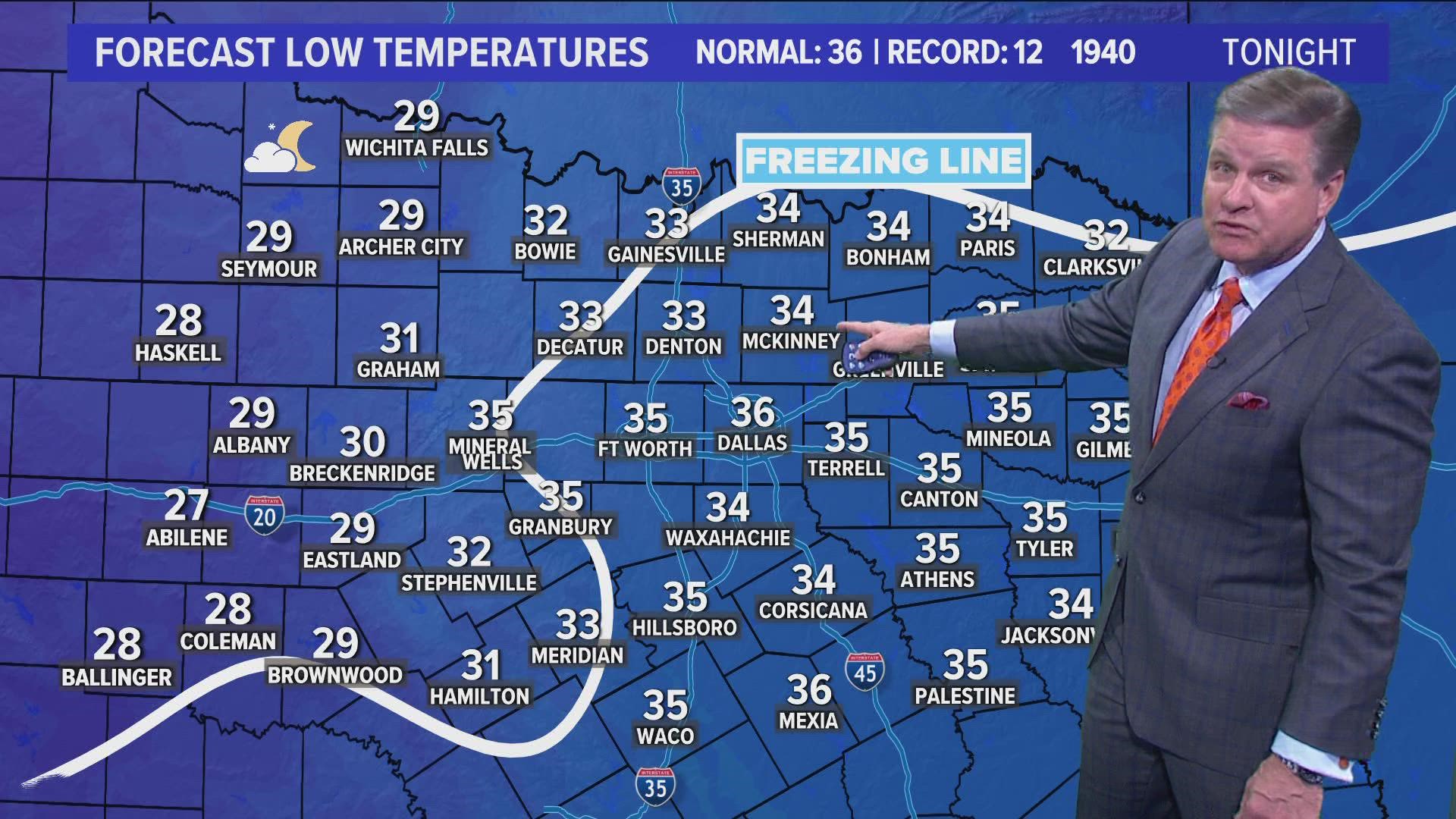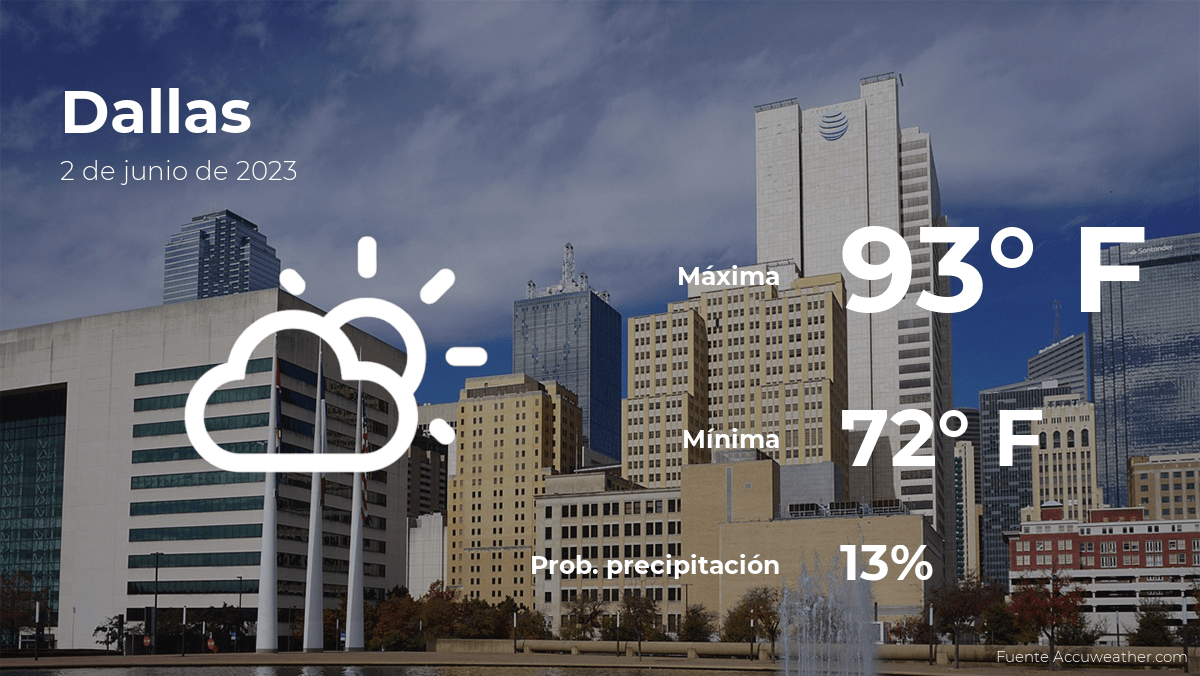Dallas weather is a fascinating topic that showcases the city’s unique geographical location and its influence on its climate. With distinct seasonal variations, extreme weather events, and the potential impacts of climate change, understanding Dallas weather is crucial for residents and visitors alike.
The city’s subtropical climate brings hot, humid summers and mild, occasionally cold winters. Average temperatures range from the mid-30s in January to the mid-90s in July, with humidity levels varying throughout the year. Dallas also experiences distinct seasonal transitions, with spring and fall offering pleasant weather and colorful foliage.
Dallas Weather Overview

Dallas, located in the northern part of Texas, experiences a humid subtropical climate characterized by hot, humid summers and mild winters. The city’s unique geographical position at the convergence of the Great Plains and the Gulf Coast influences its weather patterns.
Historical data shows average temperatures ranging from 44°F (7°C) in January to 95°F (35°C) in July. Annual precipitation averages around 37 inches (940 mm), with most rainfall occurring during the spring and fall months. Humidity levels are generally high throughout the year, averaging around 70%.
Seasonal Variations

Dallas experiences distinct weather conditions across the four seasons.
Spring (March-May)
Spring brings mild temperatures, with average highs in the mid-70s °F (24°C) and lows in the mid-50s °F (13°C). Rainfall increases during this season, with occasional thunderstorms and the potential for severe weather.
Summer (June-August)
Summers in Dallas are hot and humid, with average highs reaching into the mid-90s °F (35°C) and lows in the mid-70s °F (24°C). High humidity levels can make the heat feel even more oppressive. Thunderstorms are common during the summer, often accompanied by heavy rain and lightning.
Fall (September-November)
Fall brings a gradual decrease in temperatures, with average highs in the mid-70s °F (24°C) and lows in the mid-50s °F (13°C). Rainfall remains moderate, and the weather is generally pleasant.
Winter (December-February)
Winters in Dallas are mild, with average highs in the mid-50s °F (13°C) and lows in the mid-30s °F (1°C). Precipitation is generally low, and snowfall is rare.
Extreme Weather Events

Dallas is prone to various extreme weather events, including:
- Tornadoes:The city is located in Tornado Alley and experiences an average of 1-2 tornadoes per year.
- Hurricanes:While less common, hurricanes can impact Dallas, bringing heavy rain, strong winds, and potential flooding.
- Heat Waves:Extended periods of extreme heat and humidity can occur during the summer months, posing health risks to residents.
- Winter Storms:Occasionally, Dallas experiences winter storms that can bring snow, ice, and freezing temperatures.
Climate Change Impacts, Dallas weather
Climate change is projected to have significant impacts on Dallas’s weather patterns.
- Increased Temperatures:Average temperatures are expected to rise, leading to more frequent and intense heat waves.
- Changes in Precipitation Patterns:Precipitation is predicted to become more variable, with both heavier downpours and longer periods of drought.
- Increased Frequency of Extreme Weather Events:Climate change is expected to increase the frequency and severity of extreme weather events, such as tornadoes, hurricanes, and heat waves.
Weather Forecasting and Monitoring
Dallas’s weather is closely monitored and forecasted by the National Weather Service (NWS) and local media outlets.
- Weather Data Collection:Weather data is collected through a network of weather stations and radar systems.
- Analysis and Forecasting:Meteorologists analyze weather data to make forecasts using computer models and historical trends.
- Dissemination of Forecasts:Weather forecasts are disseminated through various channels, including websites, mobile apps, and television and radio broadcasts.
Local Weather Resources
Residents of Dallas can access up-to-date weather information from various local resources:
- National Weather Service (NWS) Dallas-Fort Worth: https://www.weather.gov/fwd/
- WFAA-TV (ABC affiliate): https://www.wfaa.com/weather/
- KXAS-TV (NBC affiliate): https://www.nbcdfw.com/weather/
- KTVT-TV (CBS affiliate): https://cbsdfw.com/weather/
Closing Notes
As Dallas continues to grow and develop, understanding its weather patterns becomes increasingly important. By staying informed about weather conditions, residents can prepare for extreme events, mitigate the impacts of climate change, and make informed decisions about their daily lives.